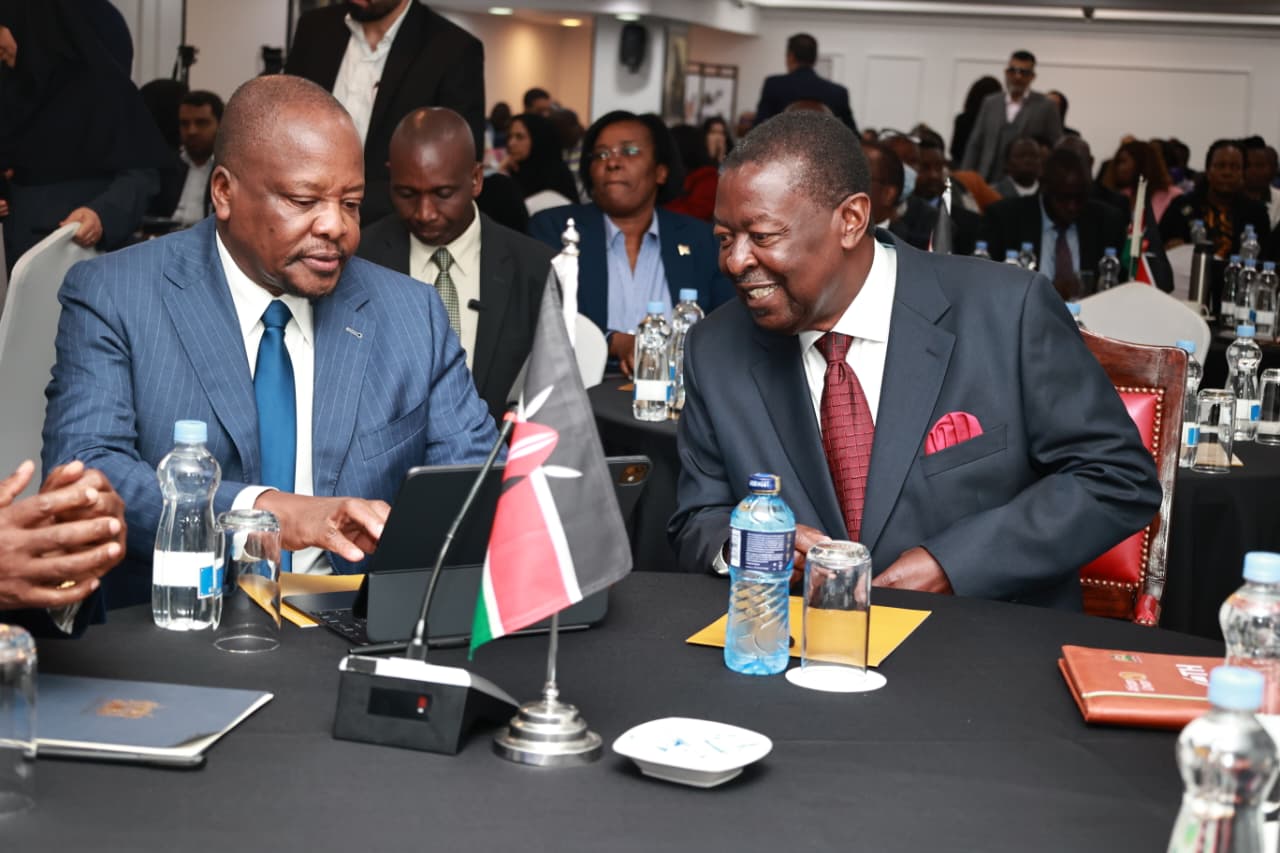

Kenya and Iran have agreed to establish a joint committee tasked with removing trade barriers within 60 days.
The move is aimed at lifting the ban on Kenyan tea exports
to Iran.
The development was announced during the 7th Session of the Kenya–Iran Joint Commission for Cooperation (JCC) held in Nairobi.
The commission was co-chaired by Prime Cabinet Secretary Musalia Mudavadi and Iran’s Minister of Agriculture, Dr. Gholamreza Nouri Ghezalcheh.
Agriculture and Livestock Development Cabinet Secretary Sen. Mutahi Kagwe said the two countries had agreed to draft strict regulations to prevent such criminal activity in future and safeguard the integrity of Kenyan tea.
“Kenya’s tea sector is one of our largest foreign exchange earners, and we must protect it from unscrupulous traders who damage our reputation,” said the CS.
The ban on Kenyan tea was imposed following an alleged criminal trade malpractice involving a Kenyan firm, which led to suspension of exports to the Middle Eastern nation.
Before the suspension, Iran was among Kenya’s top importers of tea.
Mudavadi highlighted the remarkable growth in tea exports, noting that volumes had risen from 3.2 metric tonnes in 2020 to a record 13 metric tonnes in 2024. The corresponding export value jumped from USD 5 million to USD 33 million over the same period.
“This growth was achieved despite a price cap of USD 2 per kilogramme for Kenyan tea, which is of premium grade compared to Indian and Sri Lankan teas capped at USD 4.5 per kilogramme. The Government of Kenya looks forward to lifting the ban so that the export of Kenyan tea to Iran may resume,” Mudavadi said.
Agriculture and Livestock Development Cabinet Secretary Mutahi Kagwe emphasised the need for both countries to introduce stringent regulations to safeguard the integrity of Kenyan tea exports.
“Kenya’s tea sector is one of our largest foreign exchange earners, and we must protect it from unscrupulous traders who damage our reputation,” Kagwe said.
The embargo has significantly impacted Kenyan tea farmers and exporters financially, intensifying calls for a swift resolution.
The joint committee will develop a framework to restore
trust, enforce quality standards, and facilitate the resumption of tea exports
within the 60-day deadline.
The JCC meeting also provided an opportunity for Kenya and Iran to review their broadening partnership and explore collaboration in areas such as climate-smart agriculture, manufacturing, transport and infrastructure, education and training, customs cooperation, and renewable energy.
Mudavadi reiterated Kenya’s strategic positioning as a gateway to East Africa and the wider continent, as well as a growing hub for trade, innovation, logistics, and diplomacy.
He welcomed increased interest from Iranian businesses in Kenya’s market and encouraged Kenyan entrepreneurs to explore opportunities within Iran’s dynamic economy.












